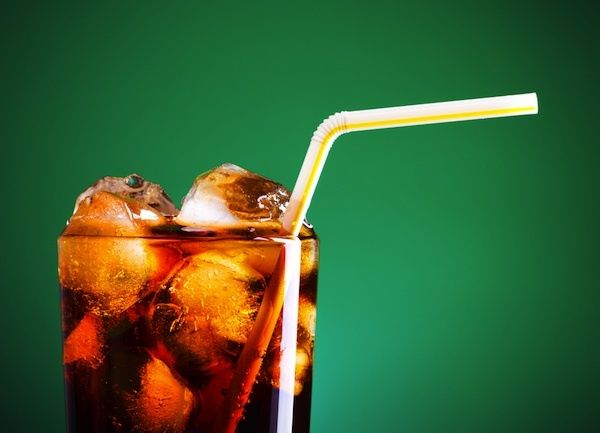Drinking Diet Soda Linked to Depression

Calorie-free drinks are not necessarily risk free. A new study has found a link between drinking diet soda or diet fruit drinks and an increased risk of depression.
The study researchers analyzed information from more than 263,900 U.S. adults ages 50 to 71 who answered questions about their beverage consumption between the years 1995 and 1996. About 10 years later (from 2004 to 2006), the same people were asked if a doctor had diagnosed them with depression since the year 2000.
People who regularly drank four or more cans of any type of soda a day were 30 percent more likely to have received a diagnosis of depression than people who did not drink soda. The risk of depression was especially high for people who drank diet soda — a 31 percent increased risk compared to a 22 percent increased risk for those who drank regular soda, the researchers said.
Those who drank four or more cans of diet fruit drinks were 51 percent more likely to be diagnosed with depression compared to those who did not drink diet fruit drinks.
By contrast, people who drank four or more cups of coffee a day were 10 percent less likely to have been diagnosed with depression compared to non-coffee drinkers.
The study only found an association, and did not determine whether or not diet soda or fruit drinks caused depression. Although the researchers took into account factors that could affect the results, such as age, sex, education, smoking status, physical activity, body mass index (BMI) and energy intake, it's possible other circumstances, such as a family history of depression or stressful life events, could explain the association.
A family history of depression and stressful life events are some of the biggest predictors of depression, said Emma Robertson-Blackmore, assistant professor of psychiatry at the University of Rochester Medical Center, who was not involved in the study. In addition, older people are more likely to experience stressful life events, including the death of a loved one, job changes or illnesses, Robertson-Blackmore said.
Sign up for the Live Science daily newsletter now
Get the world’s most fascinating discoveries delivered straight to your inbox.
However, the findings agree with those of a few previous studies that found a link between frequent consumption of sweetened beverages and a higher prevalence of depression, the researchers said. (Diet sodas and fruit drinks are sweetened, but their sweeteners contain no calories.)
"More research is needed to confirm these findings, and people with depression should continue to take depression medications prescribed by their doctors," said study researcher Dr. Honglei Chen, of the National Institutes of Health.
The results also back up findings from a study published in 2011, which found a link between coffee consumption and a reduced risk of depression in women.
"Coffee contains large amounts of caffeine, which is a well-known brain stimulant," which could be responsible for effects on mood, Chen said.
The study will be presented at the American Academy of Neurology's annual meeting in San Diego in March.
Pass it on: Drinking soda, especially diet soda, has been linked to an increased risk of depression.
Follow Rachael Rettner on Twitter @RachaelRettner, or MyHealthNewsDaily @MyHealth_MHND. We're also on Facebook & Google+.

Rachael is a Live Science contributor, and was a former channel editor and senior writer for Live Science between 2010 and 2022. She has a master's degree in journalism from New York University's Science, Health and Environmental Reporting Program. She also holds a B.S. in molecular biology and an M.S. in biology from the University of California, San Diego. Her work has appeared in Scienceline, The Washington Post and Scientific American.

NASA changes odds of asteroid hitting Earth in 2032 yet again — but this time it's good news

How to watch 'Museum Alive with David Attenborough', as US streaming begins for CGI-fueled documentary

AI-designed chips so weird that 'humans cannot really understand them' — but they perform better than anything we've created
Most Popular

